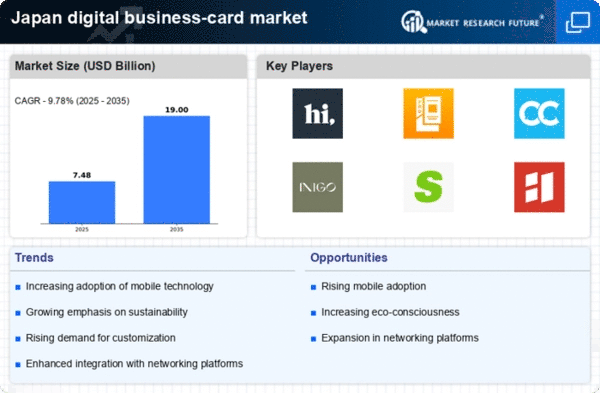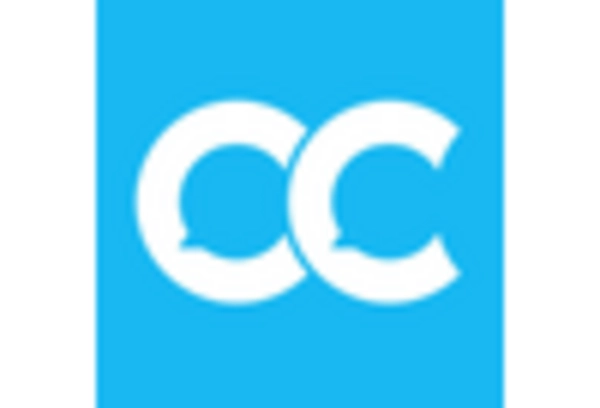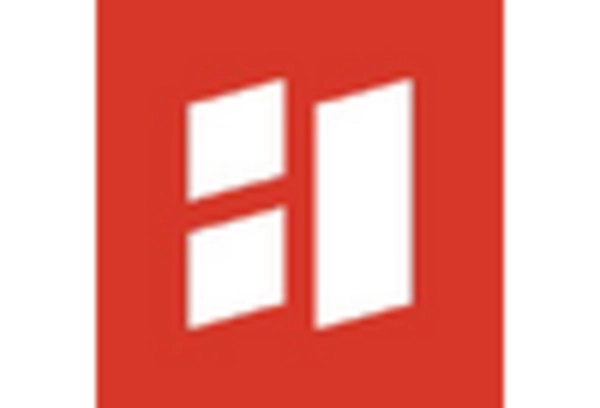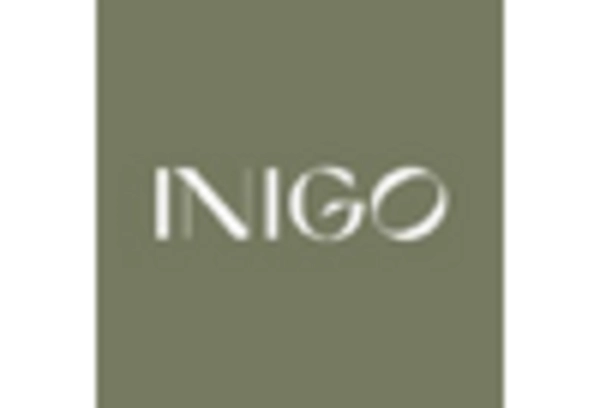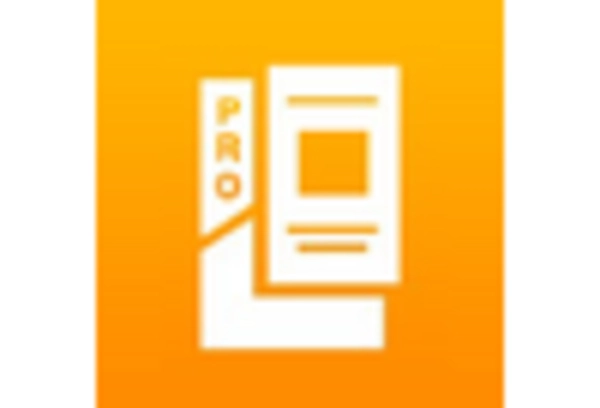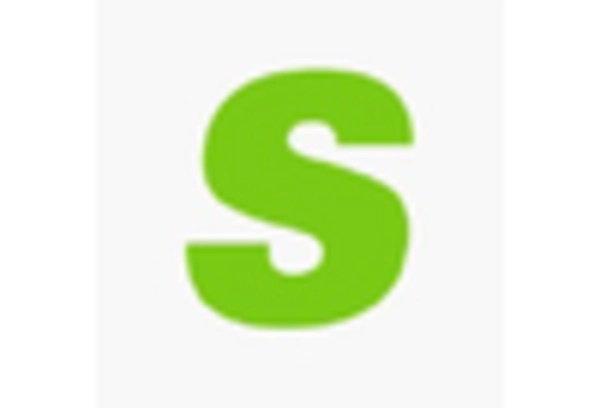Shift Towards Remote Networking
The digital business-card market in Japan is witnessing a transformation due to the shift towards remote networking. As professionals increasingly engage in virtual meetings and online events, the need for effective digital networking tools becomes paramount. This trend suggests that the digital business-card market industry is adapting to cater to a more digitally-savvy workforce. The convenience of sharing digital cards during virtual interactions enhances networking opportunities, potentially increasing market penetration by 20% in the coming years. Additionally, the integration of features such as video introductions and interactive elements in digital cards may further attract users, making them a vital tool for professional branding in a remote work environment.
Growing Emphasis on Data Privacy
In the context of the digital business-card market, the growing emphasis on data privacy is a critical driver. As consumers become more aware of data security issues, there is a rising demand for solutions that prioritize user privacy. The digital business-card market industry is responding by implementing robust security measures, such as encryption and user-controlled data sharing options. This focus on privacy could potentially enhance consumer trust, leading to increased adoption rates. Market analysts suggest that companies prioritizing data protection may see a competitive advantage, with projections indicating a 15% growth in user engagement for those offering secure digital business-card solutions.
Emergence of Innovative Design Trends
The digital business-card market in Japan is being shaped by the emergence of innovative design trends. As users seek to differentiate themselves in a competitive landscape, the demand for visually appealing and unique digital cards is on the rise. This trend indicates that the digital business-card market industry is evolving to accommodate diverse design preferences, including customizable templates and interactive features. The integration of augmented reality and multimedia elements into digital cards may further enhance user engagement. As a result, businesses that invest in creative design solutions could potentially capture a larger market share, with estimates suggesting a 20% increase in demand for innovative digital business cards over the next few years.
Increased Adoption of Mobile Technology
The proliferation of smartphones in Japan has significantly influenced the digital business-card market. With over 90% of the population owning a smartphone, the accessibility of digital business cards through mobile devices is a key driver. This trend indicates a shift towards mobile-first solutions, where users prefer to manage their professional identities digitally. The digital business-card market industry is poised for growth as mobile applications become more sophisticated, offering features such as analytics and integration with social media platforms. As businesses recognize the importance of mobile technology in enhancing customer engagement, the market could see an increase in investment, potentially leading to a 30% rise in user adoption over the next few years.
Rising Demand for Contactless Solutions
The digital business-card market in Japan is experiencing a notable surge in demand for contactless solutions. As businesses and individuals seek to minimize physical interactions, the convenience of digital business cards becomes increasingly appealing. This shift is reflected in a growing number of users adopting digital formats, with estimates suggesting that the market could expand by approximately 25% annually. The ease of sharing contact information through QR codes and NFC technology enhances user experience, making it a preferred choice for networking. Furthermore, the digital business-card market industry is likely to benefit from the increasing integration of mobile applications that facilitate seamless sharing and storage of digital cards, thereby streamlining professional interactions.


